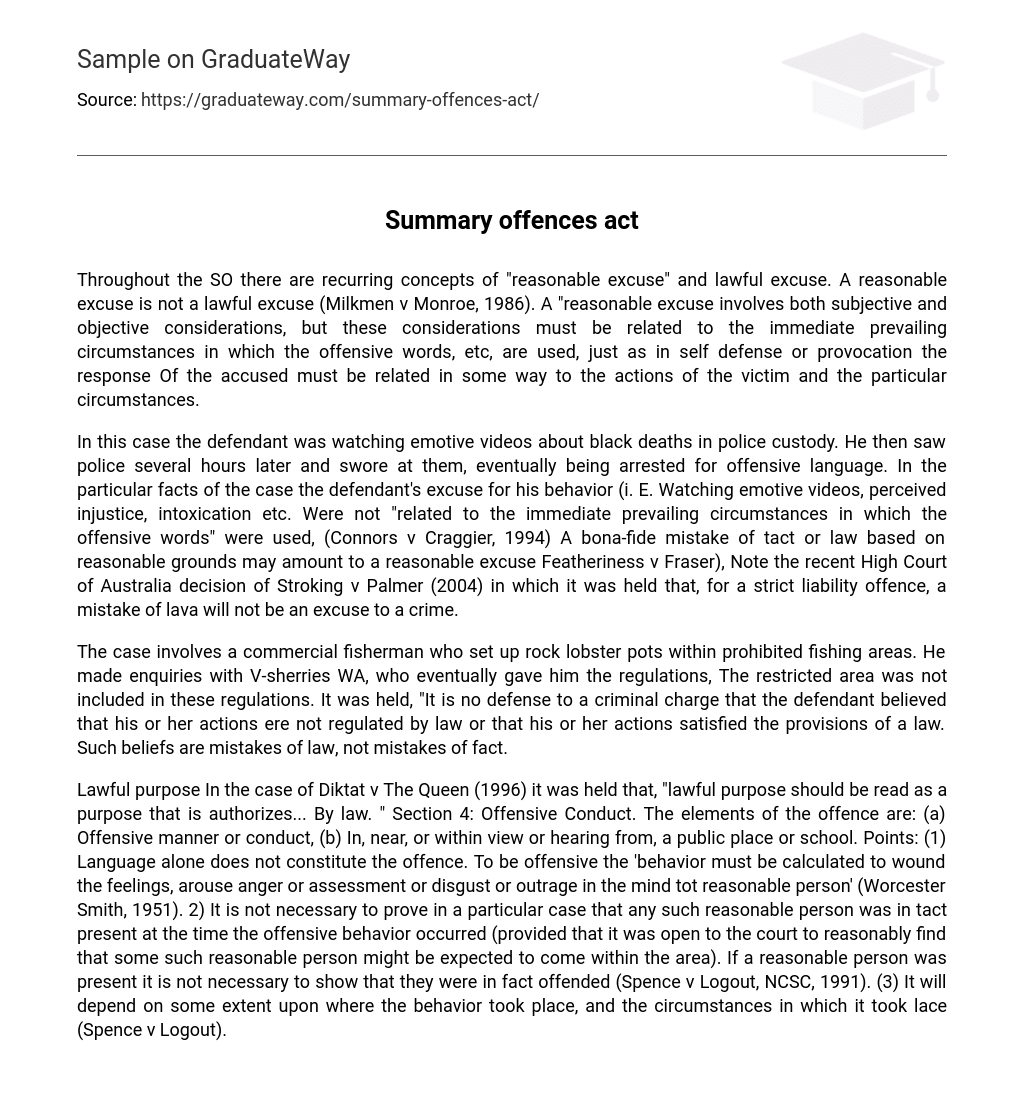Throughout the SO there are recurring concepts of “reasonable excuse” and lawful excuse. A reasonable excuse is not a lawful excuse (Milkmen v Monroe, 1986). A “reasonable excuse involves both subjective and objective considerations, but these considerations must be related to the immediate prevailing circumstances in which the offensive words, etc, are used, just as in self defense or provocation the response Of the accused must be related in some way to the actions of the victim and the particular circumstances.
In this case the defendant was watching emotive videos about black deaths in police custody. He then saw police several hours later and swore at them, eventually being arrested for offensive language. In the particular facts of the case the defendant’s excuse for his behavior (i. E. Watching emotive videos, perceived injustice, intoxication etc. Were not “related to the immediate prevailing circumstances in which the offensive words” were used, (Connors v Craggier, 1994) A bona-fide mistake of tact or law based on reasonable grounds may amount to a reasonable excuse Featheriness v Fraser), Note the recent High Court of Australia decision of Stroking v Palmer (2004) in which it was held that, for a strict liability offence, a mistake of lava will not be an excuse to a crime.
The case involves a commercial fisherman who set up rock lobster pots within prohibited fishing areas. He made enquiries with V-sherries WA, who eventually gave him the regulations, The restricted area was not included in these regulations. It was held, “It is no defense to a criminal charge that the defendant believed that his or her actions ere not regulated by law or that his or her actions satisfied the provisions of a law. Such beliefs are mistakes of law, not mistakes of fact.
Lawful purpose In the case of Diktat v The Queen (1996) it was held that, “lawful purpose should be read as a purpose that is authorizes… By law. ” Section 4: Offensive Conduct. The elements of the offence are: (a) Offensive manner or conduct, (b) In, near, or within view or hearing from, a public place or school. Points: (1) Language alone does not constitute the offence. To be offensive the ‘behavior must be calculated to wound the feelings, arouse anger or assessment or disgust or outrage in the mind tot reasonable person’ (Worcester Smith, 1951). 2) It is not necessary to prove in a particular case that any such reasonable person was in tact present at the time the offensive behavior occurred (provided that it was open to the court to reasonably find that some such reasonable person might be expected to come within the area). If a reasonable person was present it is not necessary to show that they were in fact offended (Spence v Logout, NCSC, 1991). (3) It will depend on some extent upon where the behavior took place, and the circumstances in which it took lace (Spence v Logout).





